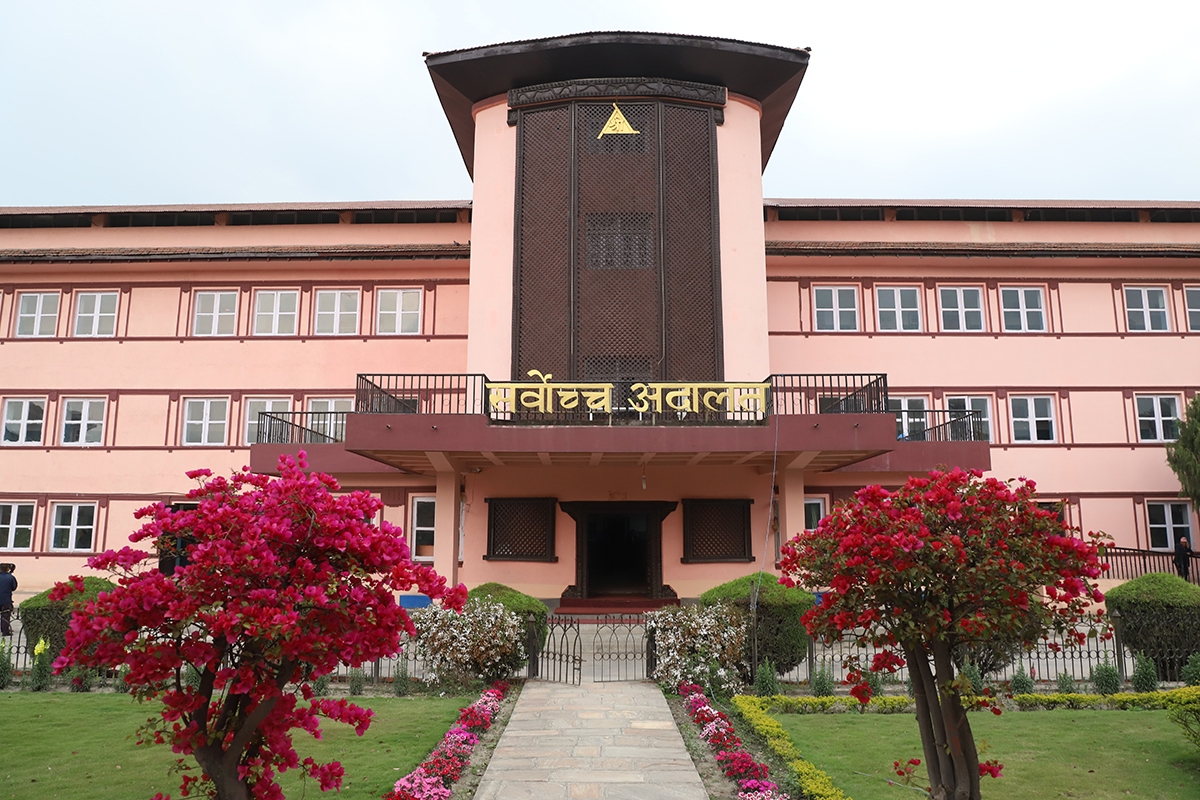Hearing on House dissolution
Amicus Curiae members give mixed views on PM's move

By Ranju Kafle
Kathmandu, Feb. 19: Two legal experts, Purnaman Shakya and Bijayakanta Mainali of the Amicus Curiae, expressed mixed opinions Thursday to a Supreme Court bench on the writs filed against the dissolution of the House of Representatives.
Both senior advocates agreed that the Prime Minister has some residual rights in the Constitution but they disagreed the way the Prime Minister used the right to dissolve the House.
“The Constitution mentions that the executive has some residual rights in its Article 85. However, the right is implied right, it needs to be located with substantial power from legislature,” they said.
Advocate Mainali began pleading on behalf of the Amicus Curiae today. He said that the right of dissolution was a choice of the Prime Minister.
“Dissolution is a choice of the executive, he can choose whether to resign or dissolve it for fresh mandate,” he added. Mainali also said that the executive head elected under Article 76 of the Constitution could enjoy the right of choice in the Constitution. Article 76 (7) was the source of the right the executive had.
Senior advocate Purnaman Shakya, however, expressed a different view. He said that no rights were given to the Prime Minister to dissolve the House. “The country suffered with frequent dissolution as the right was given to the King in previous constitutions,” he added.
He argued that that the Prime Minister has only ordinary executive rights but not residual or unlimited rights for the dissolution. Shakya claimed that the move came because of intra-party dispute which was inappropriate. “No article of the constitution can be evoked for managing intra-party feud,” he added.
Justice Anil Sinha asked him whether the Prime Minister appointed under the Article 76(10), 76 (2) or 76 (3) can exercise the right of dissolution as mentioned in Article 76 (7). “Everyone or the specific one?” he asked.
“According to the Constitution, only the Prime Minister elected under Article 76(3) can use the right of dissolution if he fails to get vote of confidence,” he responded. Shakya also said that the separation of power between executive and legislative ensures proper check and balance.
The Supreme Court will give its verdict after senior advocate Geeta Pathak from Supreme Court Bar Association puts forth her views to the court on Friday. Badri Bahadur Karki and Satish Krishna Kharel had already completed their pleading on the matter.
Five senior advocates Badri Bahadur Karki, Satish Krishna Kharel and Bijayakanta Mainali from Nepal Bar Association and Purnaman Shakya and Geeta Pathak from Supreme Court Bar are in Amicus Curiae.
Recent News

Do not make expressions casting dout on election: EC
14 Apr, 2022
CM Bhatta says may New Year 2079 BS inspire positive thinking
14 Apr, 2022
Three new cases, 44 recoveries in 24 hours
14 Apr, 2022
689 climbers of 84 teams so far acquire permits for climbing various peaks this spring season
14 Apr, 2022
How the rising cost of living crisis is impacting Nepal
14 Apr, 2022
US military confirms an interstellar meteor collided with Earth
14 Apr, 2022
Valneva Covid vaccine approved for use in UK
14 Apr, 2022
Chair Prachanda highlights need of unity among Maoist, Communist forces
14 Apr, 2022
Ranbir Kapoor and Alia Bhatt: Bollywood toasts star couple on wedding
14 Apr, 2022
President Bhandari confers decorations (Photo Feature)
14 Apr, 2022










